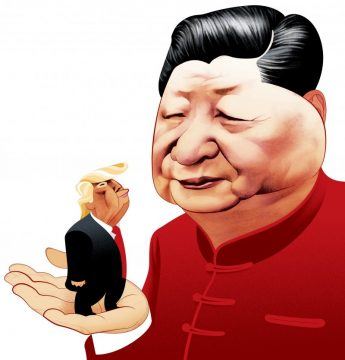John Gray in New Statesman:
 The deserted streets will fill again, and we will leave our screen-lit burrows blinking with relief. But the world will be different from how we imagined it in what we thought were normal times. This is not a temporary rupture in an otherwise stable equilibrium: the crisis through which we are living is a turning point in history. The era of peak globalisation is over. An economic system that relied on worldwide production and long supply chains is morphing into one that will be less interconnected. A way of life driven by unceasing mobility is shuddering to a stop. Our lives are going to be more physically constrained and more virtual than they were. A more fragmented world is coming into being that in some ways may be more resilient.
The deserted streets will fill again, and we will leave our screen-lit burrows blinking with relief. But the world will be different from how we imagined it in what we thought were normal times. This is not a temporary rupture in an otherwise stable equilibrium: the crisis through which we are living is a turning point in history. The era of peak globalisation is over. An economic system that relied on worldwide production and long supply chains is morphing into one that will be less interconnected. A way of life driven by unceasing mobility is shuddering to a stop. Our lives are going to be more physically constrained and more virtual than they were. A more fragmented world is coming into being that in some ways may be more resilient.
The once formidable British state is being rapidly reinvented, and on a scale not seen before. Acting with emergency powers authorised by parliament, the government has tossed economic orthodoxy to the winds. Savaged by years of imbecilic austerity, the NHS – like the armed forces, police, prisons, fire service, care workers and cleaners – has its back to the wall. But with the noble dedication of its workers, the virus will be held at bay. Our political system will survive intact. Not many countries will be so fortunate. Governments everywhere are struggling through the narrow passage between suppressing the virus and crashing the economy. Many will stumble and fall.
…With all its talk of freedom and choice, liberalism was in practice the experiment of dissolving traditional sources of social cohesion and political legitimacy and replacing them with the promise of rising material living standards. This experiment has now run its course. Suppressing the virus necessitates an economic shutdown that can only be temporary, but when the economy restarts, it will be in a world where governments act to curb the global market.
More here.
